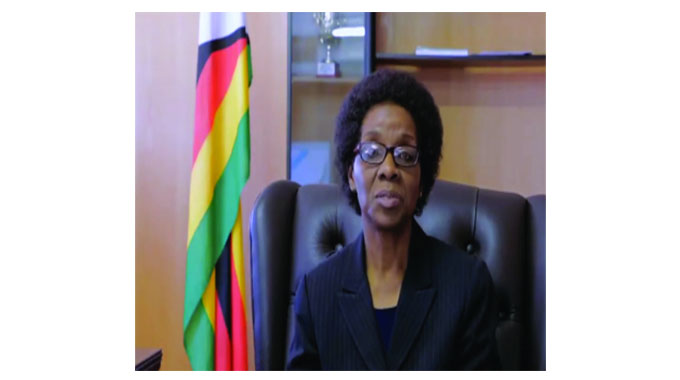Covid-19: We’re not out of the woods yet

Yoliswa Dube-Moyo, Senior Features Reporter
ZIMBABWE watched fretfully as hundreds turned into thousands and now millions of deaths from Covid-19 globally.
The virus was always going to make it past the borders and the country’s health system was not prepared for an influx of patients.
A national lockdown was imminent. The indefinite lockdown has been ongoing for over six months, relatively managing to slow the spread of the coronavirus.
It might be by a sheer stroke of luck that the death toll has not been as high as anticipated but it does not take away from the fact that 231 people have so far died from Covid-19 with experts indicating that laxity might result in a stronger strain of the virus with even more overwhelming consequences.
Since the lockdown has been eased with an extension of business hours from 6.30am to 6.30pm and an 8pm to 6am curfew to restrict night activities, there is growing concern that people assume it to mean Covid-19 is no longer among us.
Mpilo Central Hospital clinical director Professor Solwayo Ngwenya has been consistently urging people to remain vigilant and follow health recommendations to help contain the spread of the virus.
In a recent Tweet, Prof Ngwenya said: “Today marks a terrible milestone in the world. One million of our people have died. Those of us still breathing, it’s a grim reminder about what can befall us, taken away suddenly. Without a vaccine, we are all vulnerable. Let’s maintain vigilance.”
While some western, traditional or home remedies may provide comfort and alleviate symptoms of mild Covid-19, there are no medicines that have been shown to prevent or cure the disease.
The World Health Organisation does not recommend self-medication with any medicines, including antibiotics, as a prevention or cure for Covid-19. However, there are several ongoing clinical trials of both western and traditional medicines.
“The coronavirus is still around, please respect it, fear it,” said Prof Ngwenya in another Tweet.
The message remains the same across the globe. There is no sign the rate is slowing, which makes it all the more important to continue washing hands religiously, making use of sanitisers, wearing masks and keeping a social distance.
Meanwhile, Zimbabwe is gradually opening up the economy as the lockdown measures have generated significant setbacks for the economy.
In fact, many African countries have suffered many economic losses mainly in terms of lost productivity and trade both within and among countries.
Specifically, lockdown measures have significantly strained almost all key growth enhancing sectors of many economies, and ultimately, on their overall income.
The world faces an unprecedented global recession with estimations that Covid-19 will drag African economies into a fall of about 1,4 percent in gross domestic product, with smaller economies facing contraction of up to 7,8 percent.
According to the United Nations, the contraction is mainly a result of export adjustments affecting primary commodity exporters, and the attendant losses to tax revenue which reduce the capacity of governments to extend public services necessary to respond to the crisis.
Indications estimate a regional average of about five percent in public revenue losses in Africa, with total merchandise exports contracting by about 17 percent.
“The immediate coordination of health specific responses and revamping expenditure on health systems by African governments remains key in thwarting the spread of the virus in the region. This should be augmented by debt moratoriums and increased inflows of other foreign assistance to ensure the availability of resources to fight Covid-19,” says Ms Grace Gondwe, UN Associate Economic Affairs Officer.
She says in the future, the implementation of the African Continental Free Trade Area (AfCFTA) will play a crucial role in diversifying African economies and helping to shield them from global commodity price volatilities that have continued to dictate the direction of the continents trade and economic progress.
According to the United Nations, it is too early to know the full impact of Covid-19 on Africa as experiences have been varied.
There are causes for concern, but also reasons for hope. Early estimates were pessimistic regarding the pandemic’s impact on the continent. But the relatively low numbers of Covid-19 cases reported thus far have raised hope that African countries may be spared the worst of the pandemic.
“Caution is warranted, however, as these are early days in the life cycle of a disease that is still not fully understood and where we have seen repeated patterns of first slow, then exponential growth in the number of cases. The low numbers recorded so far could be linked to minimal capacities for testing and reporting cases,” says a United Nations report.
The World Health Organisation has warned that the pandemic could kill between 83 000 and 190 000 people in 47 African countries in the first year, mostly depending on governments’ responses. And the socio-economic impacts could smolder for several years.
In Zimbabwe, safety measures are not being upheld in some sections of society. The assumption is that friends and family are Covid-19 free. Bars are the worst. While patrons sanitise their hands at the entrance and wear masks to enter, after a drink or two, caution is thrown to the wind.
Winding Zupco bus queues where people do not maintain a social distance continue unabated. The police are no longer as abrasive in ensuring people wear masks.
But the concern remains. Some people may carry the virus without showing symptoms and may spread it to everyone who comes into contact with them.
We need to continue taking heed of the countless key messages that have been shared since the virus broke out in Wuhan, China.
We need to be diligent in wearing face masks properly whenever we are in public.
Social distancing should be a must; that metre-plus between you and the next person could save your life.
Regular and thorough hand-washing is the mantra.
Assume everyone has the virus and take the necessary precautions to protect yourself and others.
Coordinator of the Covid-19 National Taskforce Dr Agnes Mahomva has stressed that medically, Zimbabwe cannot lower its guard.
She gave a scientific perspective on the issue of relaxing the measures saying we have not yet defeated the pandemic when we still have new infections.
“As long as we have new cases that are still being recorded, it’s clear that we’re not yet out of the woods. We need to remind ourselves that in Europe when the numbers started coming down, they relaxed, and now they are going up so we don’t want to do that,” said Dr Mahomva.
As at October 14, Zimbabwe had 8 055 confirmed cases, 7 640 recoveries and 231 deaths.
Harare has the highest number of cases followed by Bulawayo and Matabeleland South.
Manicaland, Mashonaland West, Bulawayo and Harare have case fatality ratios above the national average.
The Ministry noted that more males are affected when compared to females with most Covid-19 cases in the 20 to 40 years age groups which is 57 percent of the cases.
“We are probably lucky that we have a weak strain of the virus, we will die as previously predicted. Please follow all lockdown regulations religiously,” warns Prof Ngwenya. — @Yolisswa









Comments